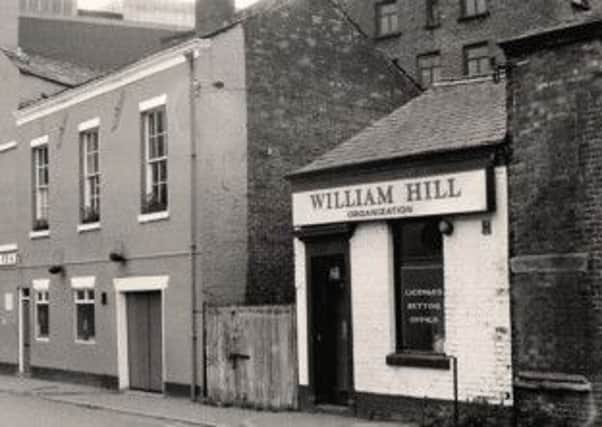William Hill bets on upturn for World Cup


The group said operating profit fell by 14 per cent in the first quarter of 2014, but the group is hoping heavy betting on the football World Cup in Brazil in June and July will help to offset the first-quarter problems.
Chief executive Ralph Topping said: “While there is no guarantee we can make up the difference, we continue to believe the increased customer confidence from such wins should be good for business, especially in this World Cup year.”
Advertisement
Hide AdAdvertisement
Hide AdThe announcement followed the news that William Hill is to close more than 100 British betting shops this year, putting 420 jobs at risk, following the Government’s decision to hike taxes on high-stakes gambling machines
The group plans to close 109 loss-making shops from a total estate of over 2,400.
It is not yet clear how the move will impact its 200 branches in Yorkshire as no announcements have been made yet.
Bookmakers face increased tax bills on two fronts over the coming year, with the Government also closing a loophole that has allowed them to base online operations offshore.
Advertisement
Hide AdAdvertisement
Hide AdDespite the news, William Hill’s shares closed up 1.3 per cent, a rise of 4p to 337p, one of the biggest risers on Britain’s FTSE 100 index of blue-chip companies.
Analyst Ivor Jones at brokerage Numis said William Hill is better placed than smaller competitors to cope with regulatory pressures and tax changes.
“We believe that William Hill is a market-leader which has seen a trough in trading in the first quarter of 2014 and will soon pass a peak of concern over regulatory risks,” he said, maintaining a “buy” rating on the stock.
Shares in William Hill and Ladbrokes have fallen sharply in the wake of last month’s tax raid, which the industry called “knee-jerk and ill-considered”.
Advertisement
Hide AdAdvertisement
Hide AdWilliam Hill said the tax rise meant there is no prospect of turning around a group of 109 underperforming branches.
The closures will result in exceptional costs of up to £24m.
Mr Topping said: “This is particularly disappointing as, through the economic downturn, we have worked hard to grow our retail base, but this further planned increase in indirect taxation makes this action necessary.”
William Hill saw revenues from fixed-odds betting terminals rise by a fifth in 2013 as it grew the number of machines to 9,400 over the year.
Advertisement
Hide AdAdvertisement
Hide AdCommunity, the union for betting shop workers, said it planned talks with William Hill over the closures.
Assistant general secretary John Park said: “The Chancellor’s decision to make such a hike in fixed-odds betting terminals duty was always going to affect the viability of betting shops on the margins of profitability.
“This has proved to be the case at William Hill and we would not be surprised to hear similar announcements from other operators in the near future.
“The Treasury’s move on fixed-odds betting terminals demonstrated a lack of joined-up thinking by the Government, given it was taken while a review of the terminals is ongoing.”
Advertisement
Hide AdAdvertisement
Hide AdIn online, which accounts for around a third of the group’s business, underlying revenues were four per cent higher, helped by a 39 per cent jump in sportsbook wagers.
Mr Topping said the company is very well-placed to take advantage of this summer’s World Cup, with an “unrivalled football product range”.
Investec analyst James Hollins retained a buy stance on the shares, saying: “We do not expect the shop closures to make a big change to earnings.”
Analyst Greg Johnson at Shore Capital said cost growth of eight per cent was encouraging.